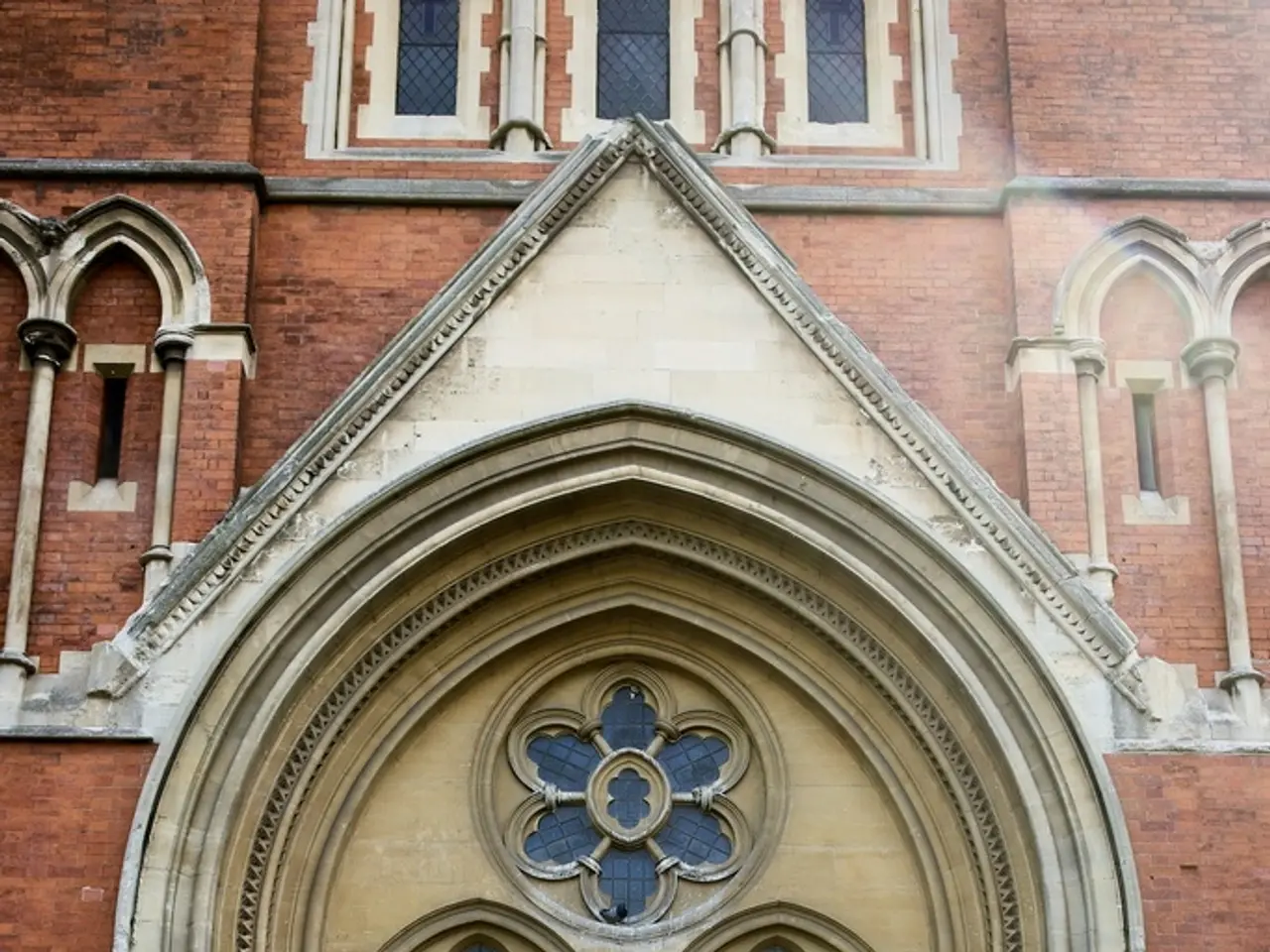Ongoing conflict regarding church sanctuary for refugees between Hamburg and Berlin persists
In the heart of Germany, a controversial case has arisen involving three Afghan men who have sought refuge in a Berlin church community. This case, which has sparked a political debate, highlights tensions between church asylum practices and the country's broader tightening of asylum and deportation policies, particularly towards Afghans.
Initially, the men applied for asylum in Sweden, but later traveled to Hamburg and sought church asylum in Berlin. The Berlin police have yet to comply with a request for assistance from the Hamburg interior authority to remove the three men from the church asylum.
The Berlin case exemplifies the ongoing struggle between church asylum, where religious institutions offer shelter to prevent deportation, and Germany's increasing emphasis on enforcing immigration laws. Church asylum is an unofficial form of protection rooted in historical tradition, but it is not legally binding, creating legal uncertainty.
Politically, this controversy underscores a clash between humanitarian protections provided by religious institutions and the state's interest in enforcing immigration laws. Advocates emphasize the heightened risks that deportees face in Afghanistan under Taliban rule and IS-KP targeting, questioning the ethics and legality of forced returns.
Meanwhile, authorities argue that deportations are justified due to security concerns after a series of attacks involving asylum seekers, including Afghans. The dispute carries broader implications for German asylum law: it challenges the state's authority versus civil society's humanitarian interventions, potentially prompting calls for clearer legal frameworks regarding church asylum and the protection of asylum seekers at risk.
The controversy has escalated to involve heads of government in Hamburg and Berlin. Heike Sudmann, faction leader of the Left Party in the Hamburg Parliament, criticized Hamburg Mayor Peter Tschentscher in an Instagram video. Berlin's head of government, on the other hand, criticized the tone of Tschentscher's response and emphasized that the political guideline in the capital is to respect church asylum.
Notably, the number of people seeking protection from parishes has increased significantly due to growing fears of deportation. The Hamburg interior authority has stated that the Federal Office for Migration and Refugees (Bamf) rejected the hardship application of the Berlin church community for the three Afghan men.
Despite an agreement between Bamf and major churches in 2015 and a written request from the Hamburg migration office in May, the church asylum was not ended. The independent community announced that it would continue the church asylum, preventing the application of European law, according to spokesman Daniel Schaefer.
The dispute also sheds light on the contrasting approaches towards deportations between Germany and Sweden. Spokesman Schaefer noted that only convicted criminals currently face deportation from Sweden to Afghanistan, but the men in the Berlin church asylum had not become convicted criminals. Germany has recently deported more convicted criminals to Afghanistan than Sweden, according to Schaefer, with the last such case occurring in July.
This case serves as a focal point in Germany’s ongoing debate over balancing security, legal norms, and humanitarian protection in asylum policy. The refugees in the Berlin church asylum face potential death if deported to their home country due to their conversion to Christianity. The Left Party faction of the Hamburg Parliament has intervened in the dispute, adding another layer of complexity to this intricate issue.
- The ongoing Berlin case, rooted in the men's migration from Afghanistan to seek church asylum in Germany, has become a hot topic in war-and-conflicts, policy-and-legislation, and politics, as it exemplifies the tension between church asylum practices and the country's broader immigration restrictions.
- The controversy over the three Afghan men seeking refuge in a Berlin church community has escalated, involving heads of government in Hamburg and Berlin, and highlighting the contrasting approaches towards deportations between Germany and Sweden.
- As the general-news unfolds, the dispute between Berlin's policy on church asylum and Germany's immigration laws underscores a clash between humanitarian protections provided by religious institutions and the state's interest in enforcing immigration laws, stirring debates on the need for clearer legal frameworks regarding church asylum.






